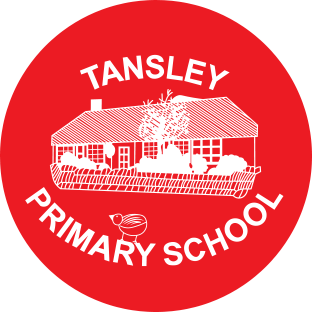Science
Curriculum Statement for Science
Intent
The 2014 national curriculum for science aims to ensure that all pupils:
- develop scientific knowledge and conceptual understanding through the specific disciplines of biology, chemistry and physics
- develop understanding of the nature, processes and methods of science through different types of science enquiries that help them to answer scientific questions about the world around them
- are equipped with the scientific skills required to understand the uses and implications of science, today and for the future.
We understand that it is important for lessons to have a skills-based focus, and that the knowledge can be taught through this. At Tansley Primary, we encourage children to be inquisitive throughout their time at the school and beyond. The Science curriculum fosters a healthy curiosity in children about our universe and promotes respect for the living and non-living. We believe science encompasses the acquisition of knowledge, concepts, skills and positive attitudes. Throughout the programmes of study, the children will acquire and develop the key knowledge that has been identified within each unit and across each year group, as well as the application of scientific skills. We ensure that the Working Scientifically skills are built-on and developed throughout children’s time at the school so that they can apply their knowledge of science when using equipment, conducting experiments, building arguments and explaining concepts confidently and continue to ask questions and be curious about their surroundings.
Implementation
Teachers create a positive, fun attitude to science learning within their classrooms and reinforce an expectation that all pupils are capable of achieving high standards in science. Our whole school approach to the teaching and learning of science involves the following;
- Science will be taught in planned and arranged topic blocks by the class teacher, to have a project-based approach. This is a strategy to enable the achievement of a greater depth of knowledge.
- Through our planning, we involve problem solving opportunities that allow children to apply their knowledge, and find out answers for themselves. Children are encouraged to ask their own questions and be given opportunities to use their scientific skills and research to discover the answers. This curiosity is celebrated within the classroom. Planning involves teachers creating engaging lessons, often involving high-quality resources to aid understanding of conceptual knowledge. Teachers use precise questioning in class to test conceptual knowledge and skills, and assess pupils regularly to identify those children with gaps in learning, so that all pupils keep up.
- We build upon the knowledge and skill development of the previous years. As the children’s knowledge and understanding increases, and they become more proficient.
- in selecting, using scientific equipment, collating and interpreting results, they become increasingly confident in their growing ability to come to conclusions based on real evidence.
- Working Scientifically skills are embedded into lessons to ensure these skills are being developed throughout the children’s school career and new vocabulary and challenging concepts are introduced through direct teaching. This is developed through the years, in-keeping with the topics.
- Teachers demonstrate how to use scientific equipment, and the various Working Scientifically skills in order to embed scientific understanding. Teachers find opportunities to develop children’s understanding of their surroundings by accessing outdoor learning and workshops with experts.
- Children are offered a wide range of extra-curricular activities, visits, trips and visitors to complement and broaden the curriculum. These are purposeful and link with the knowledge being taught in class.
- Regular events, such as Science Week or project days, allow all pupils to come off-timetable, to provide broader provision and the acquisition and application of knowledge and skills. These events often involve families and the wider community.
Impact
The successful approach at Tansley Primary, results in a fun, engaging, high-quality science education, that provides children with the foundations and knowledge for understanding the world. Our engagement with the school grounds and local environment ensures that children learn through varied and first hand experiences of the world around them. Frequent, continuous and progressive learning outside the classroom is embedded throughout the science curriculum. Through various workshops, trips and interactions with experts and local charities, children have the understanding that science has changed our lives and that it is vital to the world’s future prosperity. Children learn the possibilities for careers in science, as a result of our community links and connection with national agencies such as the STEM association and from Community links such as the _______, and relationships forged with farms and famers from our local community. Tansley pupils learn from and work with professionals, ensuring that children have access to positive role models within the field of science from the immediate and wider local community. From this exposure to a range of different scientists from various backgrounds, all children feel they are scientists and capable of achieving. Children at Tansley Primary overwhelmingly enjoy science (pupil voice) and this results in motivated learners with sound scientific understanding.
